Jealousy is a complex feeling, have you ever thought about it? Try to think about the last time you were jealous. Were you able to recognize the symptoms and rationalize them? Could you express those feelings in a balanced way? It’s not that obvious, is it? Well, now you can imagine how hard it can be for your jealous toddler to welcome a new little brother or sister, and learn how to become “the big one”. Jealousy : Instructions for use ! (And I recommend: Handle with care!)
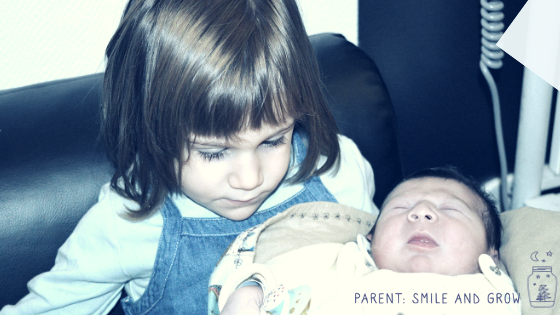
Table of Contents
What’s jealousy?
Thesaurus defines jealousy as a “mental uneasiness from suspicion or fear of rivalry, unfaithfulness, etc., as in love or aims.”
I think it’s important to keep that in mind if we want to understand our child better! (Remember, empathy is the key to everything in a relationships).
Let’s dive in!
My experience: My jealous toddler daughter
My daughter was 2 years old when we announced her little brother’s arrival. She didn’t seem particularly interested in the matter; she made a grimace of concealed skepticism, and off she went to play.
Touching my belly to feel the baby’s movements was a big no-no for her – it was like touching a lit candle and getting burned.
I was, of course, naive and unprepared, as anyone who experiences something for the first time. My poor child was still learning to talk and to use the potty, and to make things worse, we decided to move to a bigger house. (Obviously 3 weeks before the birth..).
I think I must have sometimes forgotten the empathy effect I was talking about!
Unforgettable symptoms
However, the first memory that comes to my mind is our Saturday afternoon together.
My husband needed to work at the new house, panicked as he was about the fact that the heating wasn’t working yet while winter and a new baby were coming. So I decided to take my daughter to the local Museum of Natural History.
A beautiful mother-daughter moment to reinforce our bond.
At the end of the visit, since we had had such a great time, I thought “Come on, let’s go to Church now since she’s in such a good mood, so tomorrow morning we can sleep longer”
I told you I was naive.
Anyway, my daughter happily headed off to the small area inside the church, where coloring pages and crayons are made available for the kids.
I sat all smiling. 5 minutes later, “Mom, let’s go!”
“We’ll wait 10 more minutes my love, we just got here”
And from there onward, I only remember my daughter lying on the floor, her screams completely covering the priest’s voice; and my despair, while I couldn’t pick her up with my 9th-month pregnancy belly.
(Don’t worry, we survived..)
Understand what’s happening to your firstborn
So, of course, you expect that the arrival of a new baby will unleash a series of reactions. But these are sometimes so unpredictable!
It is worth remembering that the younger the child, the less she understands what’s going on.
It’s worth remembering that as she can’t really picture this baby thing that’s coming, having too many details may have the effect of amplifying her anguish and fear.
It’s a little like when we have to start a new job, and we don’t know anything about the workplace, the tasks we’ll have to accomplish, the colleagues we’ll have.. We’d rather wait and see what happens, than overthinking and stressing too much about it.
And then.. The fear of the future makes us cling to the past as a castaway holds on his raft even long after reaching an island.
Translated into children behavior: almost certainly there will be a regression phase.
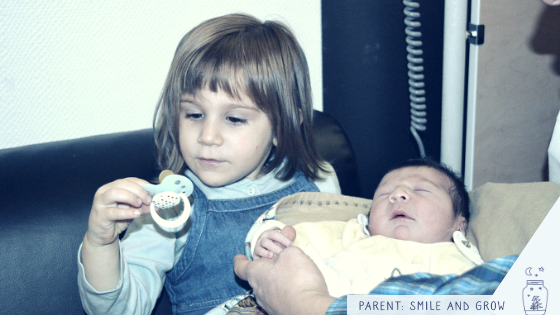
I insist: Empathy must become your new mantra. Let’s try not to make our child feel guilty about her regression – it is an absolutely normal behavior, and any reproach will just ignite a vicious cycle:
I’m afraid that Mommy doesn’t love me as before – I want to be a baby again so she can take care of me – Mommy doesn’t like me being a baby – I’m not good enough – I have to attract even more her attention – and so on.
Toddler jealousy : when the toddler can’t talk yet
Like all emotions and feelings, jealousy must also come out in some way.
A child who can’t talk will obviously struggle to understand what happens to her and explain it to others – which often leads to aggressive or negative behavior, to attract the parent’s attention.
For instance, my daughter kept biting the other children in daycare, especially younger boys. I was so afraid when I’d come to pick her up to hear once more: “Your daughter bit X and Y today, she left such a sign on their cheeks.”
So we got her a pillow which she could punch and kick and bite as a way of expressing her anger.
More often of course I was the object of her emotional arousal, which usually manifested with her refusal to obey, or with difficulties in falling asleep.
Feel like we could keep in contact? Come on in 🙂
Toddler jealousy when the toddler can talk
Being able to express one’s fears in words is a great milestone.
I mean, even for us : how many times have you kept all your fear, anguish and sadness inside you, as afraid of not being understood or accepted?
And when you did finally take the courage to trust someone, even if only a diary page? Such a relief!
In my experience, the first time it costs a huge effort to open up and show one’s vulnerability. Then slowly.. it becomes almost natural.
And you know what the main advantage is? When you talk to others, things become clearer even for yourself. While as long as the emotions remain imprisoned, they just end into circular thoughts in our head, and we’re stuck running in circles.
But back to your child: invite her to talk about how she feels. Perhaps she doesn’t know that her anger is due to the jealousy of the new coming baby; but you can teach her to say: “I’m angry/sad, I need to snuggle, I want to be with you”.
This doesn’t mean that there won’t be any sign of aggressive behavior! But they can be contained and reduced with the proper words.
Connected: How to speak so that your child will listen
What to do before baby is born
Now that we’ve seen the main symptoms… Let’s see how to mitigate them!
-
Explain what’s going on, but avoid details. Don’t keep your child too long in the dark about what is going to happen, she’ll be happy to feel part of it as well. But, as we saw, avoid too many detailed descriptions that can just nourish her fears.
-
Read books. Stories have the power to show through an external character what the child is experiencing. It is an extremely powerful weapon to reassure, explain, and talk about what’s going on. And it also allows us to spend a nice moment together! (Below you’ll find a list of books that I liked.. But you can ask at your local library or in daycare!)
-
Show the pictures of your firstborn as a baby. My daughter loves me telling her about her birth. In fact, it’s probably his favorite story. She keeps her photo album even today with great pride. This can be a valuable way to calm certain anxieties!
-
Prepare a little gift for the baby together. This was one of my midwife’s tips. I secretly bought a little something for my daughter, and then we both chose something for her baby brother. I put them both in the maternity bag; and when she came to the hospital after the birth, brother and sister “exchanged” presents. (By the way, I hadn’t thought about it but… If possible, when she enters the hospital’s room for the first time, leave the baby in his cradle and give your big one a big hug!) She was a little girl of course so she didn’t ask herself how it was possible for a baby inside my womb to get a present for her, but the symbolic gesture turned out to be a powerful weapon to see the newcomer with different eyes.
Connected: How to read a story
Why not joining our community of parents for mutual support ?
What to do next
That’s the best part. You have to balance your innate desire (and natural need) to fully dedicate to the baby; without making child number 1 feel suddenly put aside.
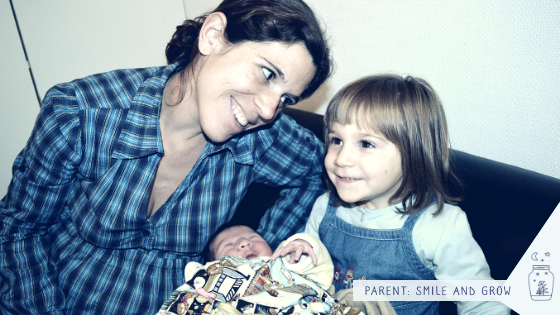
It’s like gymnastics : finding enough time and energy for everyone, including your partner and your friends, needs training. Consider falling, hurting your muscles, feeling you can’t do it..
All normal! With time and patience, you will understand how to walk on the wire.
Here’s how to reduce your jealous toddler’s resistance:
-
-
Explain how to behave, what is OK and what isn’t. What seems obvious to us may not be the same for those who see a newborn for the first time. Take the time to repeat what gestures are allowed and which are dangerous.
When the firstborn is too abrupt, think safety first, and then take the time to look into your child’s big eyes and explain what she was doing wrong – blame the act, not the child!
-
Verbalize her emotions. (Remember empathy?) “I know it’s hard. You feel that you have less attention than before. We always love you and we’re here with You”
-
Spend some 1-on-1 time with your firstborn. Even if it’s just ten minutes, without interruption, it’ll make your toddler feel you still care about her.
-
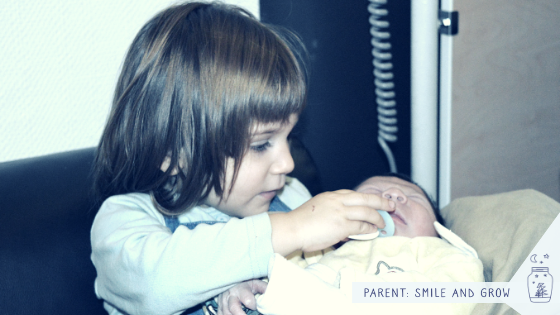
-
Let your toddler take responsibility and participate, let her feel useful. In this regard there is an interesting chapter in [eafl id=”2374″ name=”Authentic Happiness Martin Seligman” text=”Martin Seligman’s book about positive psychology”], where he tells how having asked his children carry out some of the tasks related to the care of the new born had not only strengthened their self-esteem and made them discover a predisposition towards certain activities, but also created a new, stronger complicity between them.
-
Beware of the words you use! – you don’t always want to blame the baby whenever you can’t do something with your jealous toddler..
What to do in any case
-
Keep as much as possible the same routine! It’s a point of reference that makes children feel safe.
-
Visualize an infinite tank of patience from which to draw.
-
Show in all possible ways your unconditional love. Unleash Your creativity!
-
No forcing. I would have liked my daughter to put her little head on my belly to hear her baby brother. I pictured it as a moment of great complicity. (as well as a way to make her stay still and allow me to rest for a few seconds). But everyone is different, and accepting it is a fundamental act of love.
-
Keep reinforcing the rules. With kindness, of course. But remember: children always try to break rules, especially in difficult times, to test you and see up to where they can get. Placing limits is essential to make them feel loved and safe.
Connected: 8 truly interesting things you should know about your child’s social development
In conclusion? Jealousy for a new baby is a natural difficulty to overcome
We all parents have a tendency to want to protect our children. We would like to avoid them any suffering or negative sentiment.
Yet. How many times have you overcome a difficulty and felt reborn? Didn’t it change the way you see yourself qnd your capacities?
In one of the courses for parents I attended, there was this sentence that just stuck in my head:
If Martin Luther King had not experienced racism, he could have never given his incomparable contribution to humanity.
I’m not saying we should let our children go through difficult times on purpose, because “what doesn’t kill you makes you stronger”.
But let’s not forget that difficulties are part of life and can teach us a great deal about our ability to overcome problems. Your jealous toddler is maybe facing her first obstacle – let’s turn it into an opportunity.
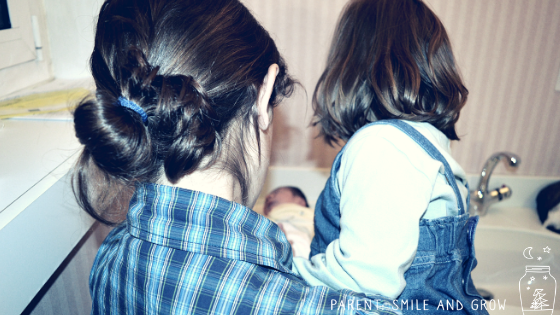
Resources and references
I share with you some articles that I have taken as a reference, and useful readings as always! Links to Amazon in this page are affiliate links.
But first, I ask you 3 things:
-
Share this post if you found it useful!
-
What do you think? I’d really like to hear about your experience 🙂
-
You liked the article and you’re interested in joining the club and receiving food for thoughts and inspiring suggestions directly in your inbox? It’s over here!
Articles:
-
Two very useful guides on siblings’ rivalry: one from Baby Centre, “why it happens and what to do about it”, and one from FamilyLifeShare, which goes deep into the causes, the activities to redirect attention, etc.
- Always from Baby Center, here you’ll have a video on how a toddler adjusts to two new siblings..
-
And since you may what to be able to spend some 1 on 1 time with your firstborn, these 7 tips on activities you may do can be useful!
Books:
-
The book series my daughter and I used to read over and over again is unfortunately not available in English; but we do love Princess Polly’s character! [eafl id=”2378″ name=”I’m a New Big Sister: A Princess Polly book” text=”Here “] she becomes a big sister
; and on the same note, [eafl id=”2379″ name=”How to Be a Baby… by Me, the Big Sister” text=”this book”] can be a great way to start talking about life with the new baby.
-
For children from 3-4 years up, you can deepen the topic pregnancy with this month-by-month guide for children “[eafl id=”2377″ name=”What’s Inside Your Tummy, Mummy?” text=”What’s Inside Your Tummy, Mummy?”]”
; or just watch a little boy waiting for his new sibling in “[eafl id=”2376″ name=”There’s A House Inside My Mummy” text=”There’s A House Inside My Mummy”]”
-
If, as a parent, you want to learn more about how to prepare your family (and yourself!) for baby number 2, this “[eafl id=”2375″ name=”The Second Baby Book: How to cope with pregnancy number two and create a happy home for your firstborn and new arrival” text=”The Second Baby Book: How to cope with pregnancy number two and create a happy home for your firstborn and new arrival”]” will come in handy!
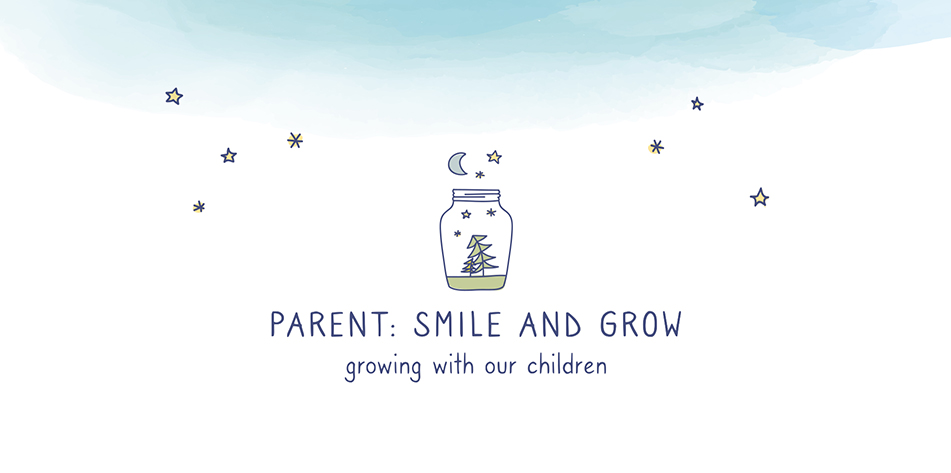
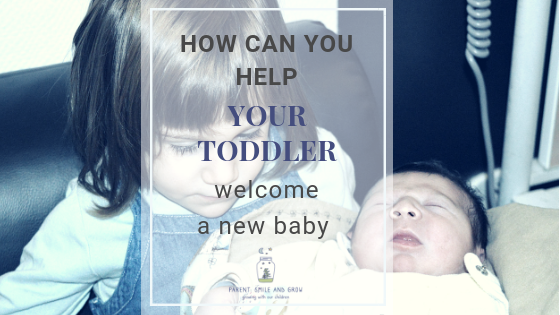





That’s a good idea to make sure to enforce the rules. I would think that would help to set boundaries with their new baby. I’ll have to make sure to do that with my kids when the new baby comes home.